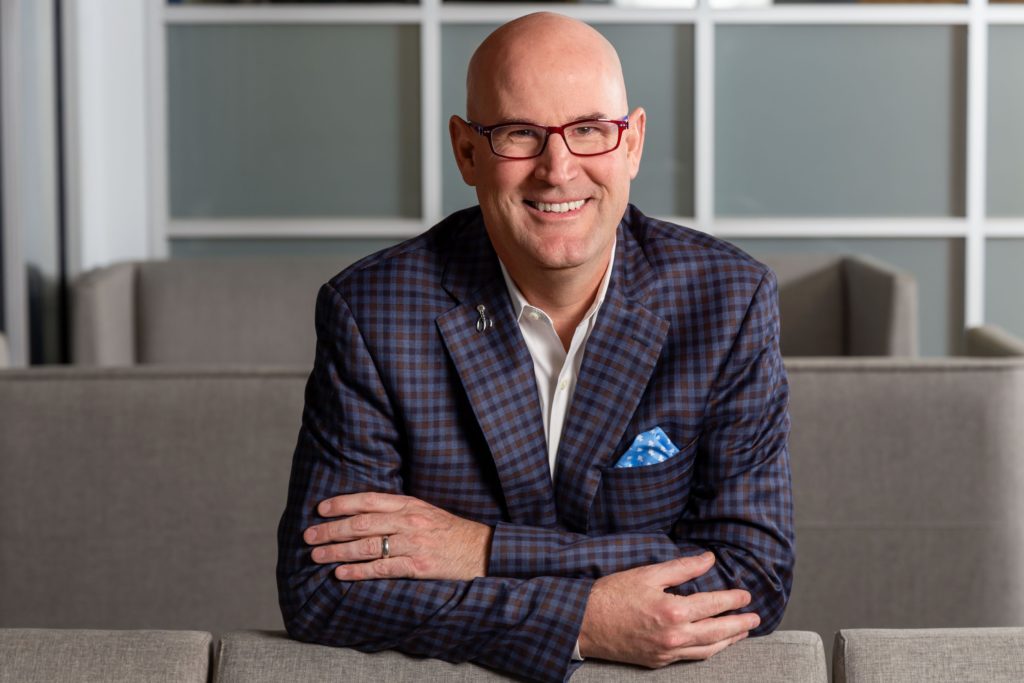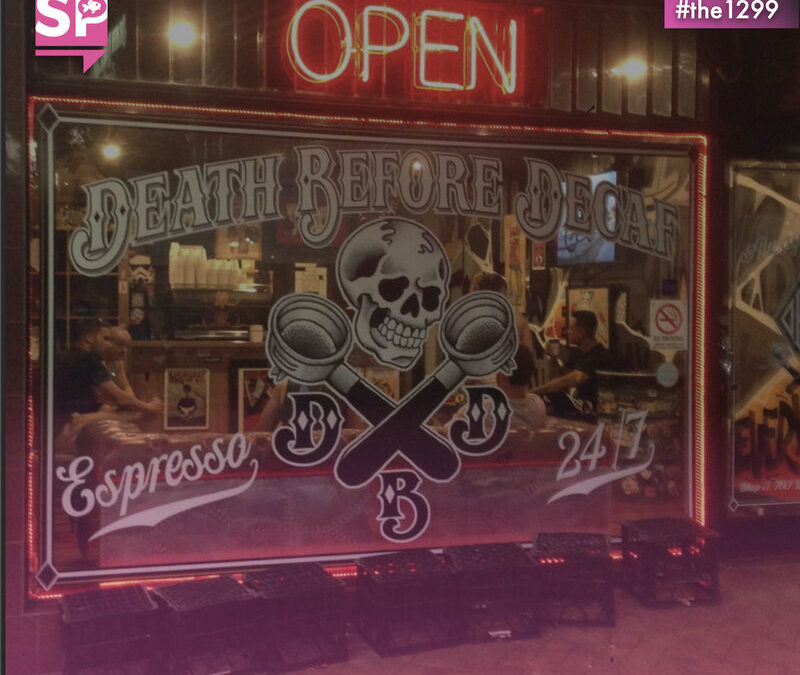Death Before Decaf. It is not only a mantra, it is a coffee shop in Brisbane, Australia. Since 2014, it has been pouring some amazing coffee in the capital of Queenland. Pouring it on is perhaps a better description.
The shop has lopsided both its hours and decor. Need a jolt? Death Before Decaf (DBD) pulls shots of espresso 24/7. It’s “Always Open” mantra is appreciated by regulars.
Expect to hear some tunes while waiting at DBD. Heavy metal is on the menu. Not everyone loves it. In a 4-star Google review Jacob Forest writes,
“Great coffee but the staff are a bit rude and the heavy death metal they always blast is enough to cause a stroke at 7am, please stop.”
The response from the owner is unapologetic, “Jacob, please stop. You happened to come in that one time that Michael Bublé wasn’t playing. At least the coffee was great. 👍”
Thanks to Frederick Marcoux for giving me the heads up on DBD. He loves it so much, Frederick ships its beans to Perth.
Frederick isn’t alone. The business has over 1,000 reviews on Google and a 4.7 rating. That’s very impressive.
Let’s get back to the 24/7 Pink Goldfish. It is an example of what Rory Sutherland would call signaling.
In the book “Alchemy,” Sutherland recalls the story of a neighborhood coffee shop near his London home. The first two sets of owners failed, yet the third had created a thriving business. The only discernable difference was the presence of tables, chairs, and a windscreen they placed each day in front of the shop.
Sutherland shares, “I think we subliminally deduce that any place that goes to the trouble of erecting chairs on the street will serve coffee that, at the very least, is unlikely to be terrible. That seems a silly use of mental energy-surely the way to determine whether the coffee is good is to buy one and find out? ‘I knew the coffee was going to be good because of the chairs,’ sounds like a very silly sentence, but hold on a moment–maybe, using psycho-logic and a bit of social intelligence, we can identify a connection…
He continues, “For a start, someone who invests in new chairs and goes to the trouble of placing them on the pavement every day is not lazy, and has also invested in their business. Furthermore, they seem to expect their business to be a success–had they not, they would not have undertaken the expense. The chairs don’t promise perfection, but they are a reliable indicator of at least reasonable quality. The business owner who buys the windbreak and the chairs has probably also invested in a decent Gaggia machine, proper milk and coffee beans–and in training staff. It suggests the owner, rather than playing the short game of immediate profit maximization, is playing the long game, building a reputation and a loyal customer base–, which will mean a cappuccino that is palatable at the very least.”
The “Always Open” aspect of DBD is a signal. How are you lopsiding certain aspects of your business to stand out?
Follow me on Twitter or LinkedIn.

Stan Phelps walks the walk. He stands out in the sea of sameness by modeling his own Differentiated Experience (DX) message: Differentiation isn’t just about what you say, it’s about what you do and, more importantly, how and why you do it. Stan leverages his unique collection of 5,000+ case studies on customer, employee, and brand experience to engage audiences with informative learning-based experiences. He believes purposeful DX wins the hearts of employees and customers, and differentiation ultimately boosts loyalty, retention, referrals, and results.
Find Stan’s in-person and virtual keynotes, workshops, and Goldfish tank programs at StanPhelps.com.

